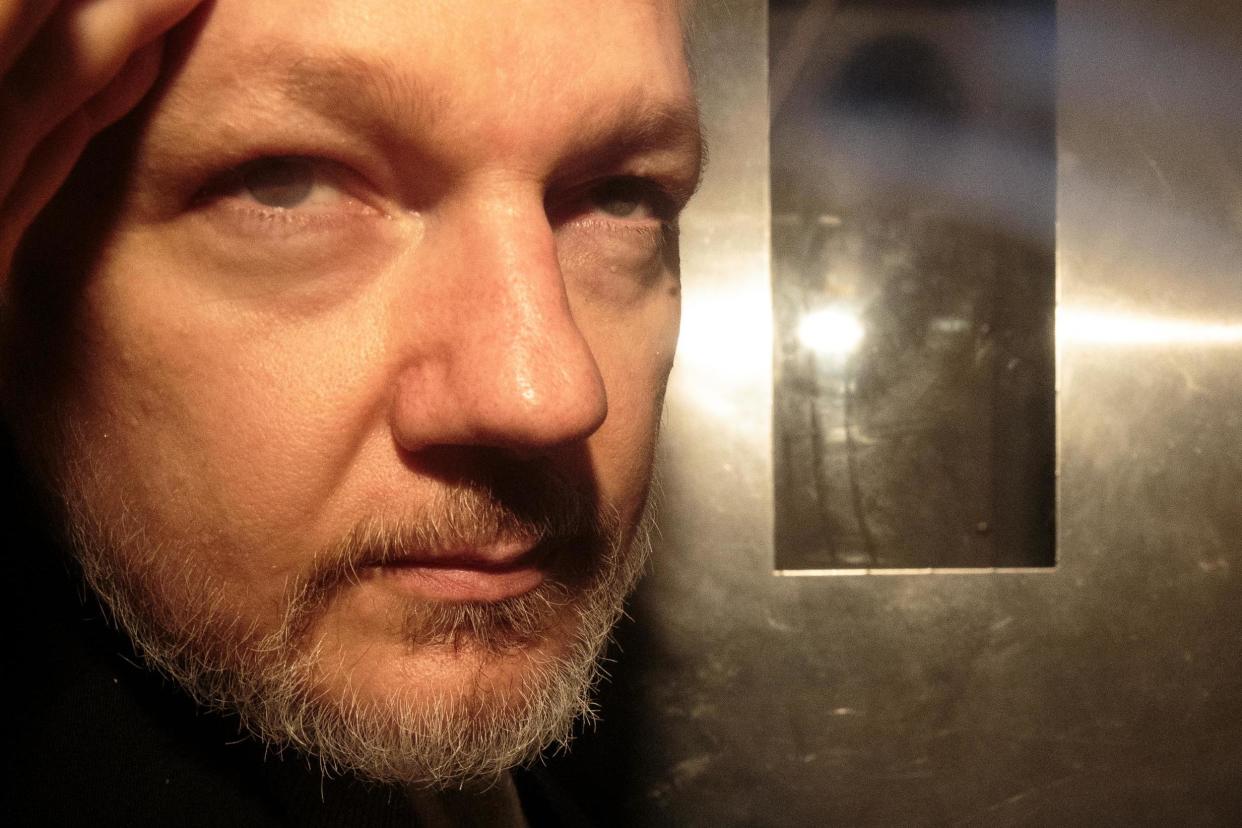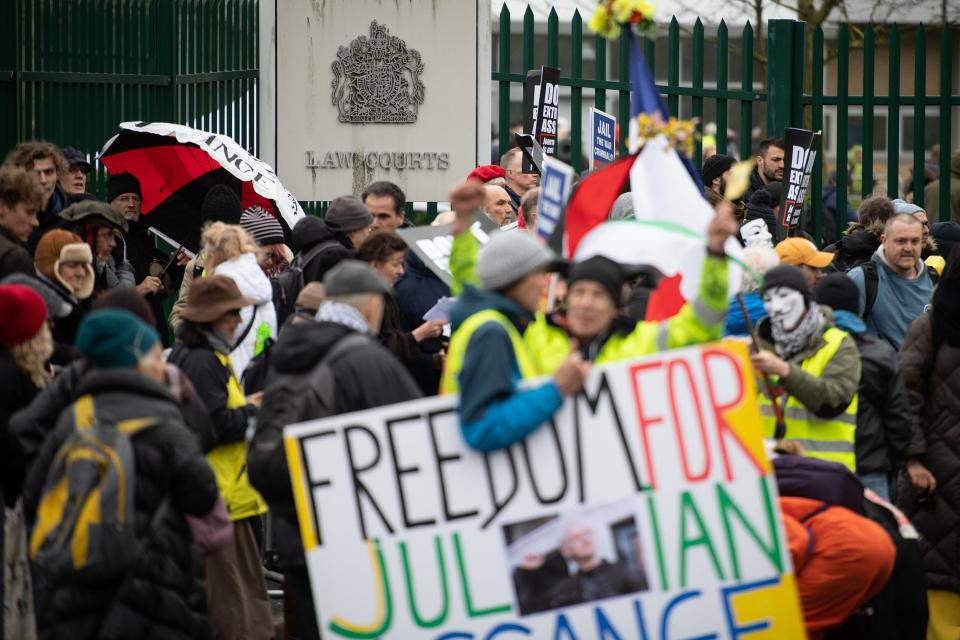Julian Assange at ‘high risk’ of taking his own life, psychiatrist tells US extradition hearing

Julian Assange is at "high risk" of killing himself because of the possibility of being extradited to the US, a psychiatrist has said.
Professor Michael Kopelman told the Old Bailey on Tuesday the 49-year-old was suffering "derogatory and persecutory" hallucinations and went to confession with a Catholic priest.
Assange is fighting extradition to the US, where he faces an 18-count indictment alleging a plot to hack computers and conspiracy to obtain and disclose national defence information.
Prof Kopelman, an emeritus professor of neuropsychiatry at King’s College London, said he had visited Assange 20 times in south-east London's high-security Belmarsh prison, where he is being held on remand.
“He reported auditory hallucinations, which were voices either inside or outside his head, somatic hallucinations, funny bodily experiences, these have now disappeared," Prof Kopelman said.
“He also has a long history of musical hallucinations, which is maybe a separate phenomenon, that got worse when he was in prison.
“The voices are things like, ‘you are dust, you are dead, we are coming to get you’. They are derogatory and persecutory.”
He added: “They seem to have diminished. Subsequently the musical hallucinations have also reduced, and the somatic hallucinations have disappeared.”

Prof Kopelman wrote in reports that Assange is at a “high risk” of committing suicide and the court heard he has frequently called the Samaritans support service from prison.
“The risk of suicide arises out of clinical factors… but it is the imminence of extradition and or an actual extradition that would trigger the attempt, in my opinion,” he said.
The professor said the combination of Assange’s depression and autism spectrum disorder has caused an “almost obsessional rumination” on the topic.
“He’s made various plans and undergone various preparations, such as confessed to the Catholic priest, who granted him absolution, began to draft farewell letters to family members and close friends, he’s drawn up a will.
“Various preparations are in place.”

James Lewis QC, for the US government, suggested Prof Kopelman had relied upon Assange’s claims that he was put in solitary confinement after prison guards found a razor blade in a pile of underwear in his cell, as well as another incident in which two cords were confiscated.
He asked Prof Kopelman whether he thought it was “bizarre” the razor incident did not appear on any of Assange’s prison notes.
The witness replied: “When I went through them again it did strike me as odd.”
Prof Kopelman told the court Assange is genetically predisposed to depression and has suffered a number of episodes, including while he stayed in the Ecuadorian embassy in London for almost seven years.
The court heard the psychiatrist diagnosed Assange with being “severely depressed” in December last year to being “moderately depressed” by February and March this year, with his condition becoming more severe again during the Covid-19 lockdown.

Prof Kopelman said Assange is taking medication to treat depression and psychosis and has suffered physical symptoms, including a loss of appetite and problems with sleep.
The court heard that Assange feared the CIA would get to him inside prison and he may have “been deliberately infected” with HIV in his sleep.
Reading from prison medical notes from April 29 last year, Mr Lewis said: “He reported a near-death experience and worried if the CIA might find a way to get him or mess with his head.”
Assange also complained of going “cold turkey” on May 15 after coming off the painkiller co-codamol, which he was taking in the embassy for toothache, the court heard.

Mr Lewis pointed to records describing Assange’s visits to the prison library, watching racing on television and playing pool with other inmates.
He suggested the behaviour did not fit with Prof Kopelman’s diagnosis or a comment Assange made to him that “he thought about suicidal ideas 100 times a day”.
Prof Kopelman said: “This was of course before he was moved on July 18 to the single cell in health care, where his health deteriorated.”
Additional reporting by PA Media
Read more
Court told of ‘Trump's plot’ to remove Assange from Ecuador’s embassy
President Trump targeting Assange 'to protect personal image'
Prosecution of Julian Assange 'part of Trump’s war on journalism'
Assange 'targeted as a political opponent of Trump administration'
Julian Assange in 'a lot of pain', says partner after prison visit
Vivienne Westwood sits in cage outside Old Bailey for Assange protest
Judge says 'ill' Julian Assange must appear at next court hearting
Julian Assange 'too unwell' for latest extradition court hearing


